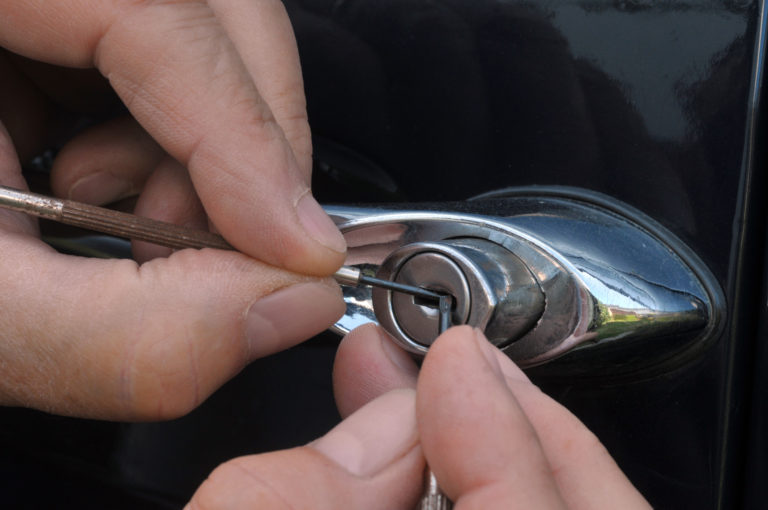One constant in the car industry is the car key. Nevertheless, a lot of innovative thinking has been applied to this basic instrument. These days, car keys range from basic mechanical to advanced smart keys, each offering different degrees of convenience, security, and sophistication. Here are the main types of car keys and their differences:
Mechanical Keys
Mechanical keys have been a part of automobiles for many years, representing the classic style. They are devoid of electronic components and function only through physical mechanics.
Characteristics
Usually fashioned from metal with a defined cut pattern, mechanical keys are designed to match the vehicle’s lock mechanism, facilitating manual insertion into the door or ignition lock for unlocking or starting. They can be duplicated using key cutting machines available at locksmith shops or hardware stores.
Pros
Operating without the need for additional technology, mechanical keys are straightforward to use. Their resilience to water damage and technical malfunctions ensures exceptional durability, guaranteeing reliable performance in various scenarios. Additionally, replacing or duplicating them tends to be more economical compared to sophisticated key types.
Cons
The security of mechanical keys is compromised compared to electronic keys because they are easier to pick or copy without electronic security mechanisms. Additionally, their manual operation may be less convenient than using a remote or smart key, particularly when quick access is required.
Remote Keys
Remote keys, commonly known as key fobs, integrate electronic components into the traditional key model, enabling remote operation of selected vehicle functions.
Characteristics
Combining a small electronic remote with a traditional mechanical key, remote keys often include the mechanical key within the fob. They connect wirelessly to the vehicle’s locking system via radio frequency signals, enabling remote operations such as trunk access, locking, and car alarm activation.
Pros
Remote keys provide unparalleled convenience by enabling remote access to vehicles, eliminating the necessity for manual door locking and unlocking. Enhanced security features such as rolling codes prevent signal interception and unauthorized access attempts. Moreover, these keys feature flexible functionalities like panic alarm activation and trunk release, improving overall usability and safety for vehicle owners.
Cons
Due to their battery operation, remote keys require frequent replacement and can be vulnerable to electrical interference and signal jamming, posing security risks. Additionally, the cost of replacing remote keys is often higher than mechanical keys because of their electrical components.
Smart Keys
With capabilities like keyless entry and ignition, smart keys represent the state of the art in automotive key technology.
Characteristics
Smart keys are recognizable by their stylish, compact fob design, typically without a visible mechanical key, although some versions may include a hidden one for emergencies. Drivers can effortlessly unlock and start their vehicles without physically removing the key fob from their pocket or purse, as the smart key is detected within a specified range. In addition to keyless entry and ignition capabilities, smart keys seamlessly integrate with car entertainment systems and provide customizable settings for various drivers.
Pros
Experience unmatched convenience with smart keys, which enable hands-free vehicle operation. These keys use advanced encryption and rolling code technology to ensure strong security against theft and unauthorized access. Moreover, smart keys are customizable, meaning multiple drivers can be programmed with different parameters for every user.
Cons
Smart keys, with their sophisticated technology, are more difficult to maintain and repair, which increases the potential for failure sites. They are also generally the priciest option for replacement or repair due to their complex features. Similar to remote keys, smart keys run on batteries and require electricity from the car’s sensors as well as the fob to function.
Need a locksmith? Don't Worry!
Our expert locksmiths are available 24/7. We're here to help with all your emergency lock needs. Don't hesitate, call us now!
There are three major types of car keys: mechanical, remote, and smart, each with its own set of pros and cons. Mechanical keys are dependable and conventional but lack remote features. Remote keys offer the convenience of remote vehicle access and typically include advanced security features such as rolling codes. Smart keys further enhance convenience with keyless entry and ignition capabilities but are more expensive to replace if lost.
As an automotive locksmith in Glen Mills, PA, our primary goal is to deliver expert solutions for car key issues with efficiency and reliability. We provide key replacement, duplication, and programming to enhance vehicle security and convenience.
As automotive locksmiths based in Glen Mills, PA, our specialization covers more than key replacement and programming; we focus on essential services for vehicle security and convenience, such as solving issues with ignition cylinders, door locks, and trunk locks.
Our company provides round-the-clock emergency automotive locksmith services in Glen Mills, PA since we recognize how serious key emergencies and car lockouts may be. Our nimble teams are constantly prepared to offer assistance to customers who are trapped at home, at work, or while traveling.
Our main objective in swift handling of situations is to minimize inconvenience and ensure our clients can safely resume their journeys. If you’re in need of reliable automotive locksmith services in Glen Mills, PA, we’re here to assist you with your car troubles. Contact us now!

